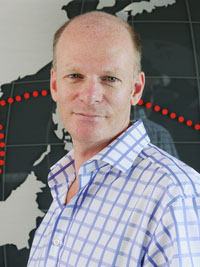Keep it simple, make it direct- Jon Bramley
October 16, 2012
EVERY sports journalist I know – well, most – believes the PR industry needs a crash course on what really makes the media tick in the 21st century.
For nearly 30 years on the sharp end of news desks at local, regional, national and finally international media organisations, I’ve seen our trade change almost out of all recognition with both time and resource in increasingly short supply.
Unfortunately, many of the PR operations serving us seemed not to have noticed. Here’s an example:
Until last year, as global sports news editor for Thomson Reuters I had a folder in my desktop for incoming press releases from the great and the good of the sports business, from football World Cups to regional triathlete trials.
Invariably it was replenished daily by 100+ new additions. Equally predictably it was full of releases that needed complete rewriting with whatever “news” it contained buried hopelessly halfway down a thousand words of PR gobbledygook.
Given a pressing workload and the same pressure on staff that is increasingly hitting all but the most flush of newsrooms, our press release file would receive only the most cursory of glances before we moved on to the real business of the day of finding “proper” sports news.
And that was a shame because every now and then, a strong story that would have worked very nicely for the Reuters file and our customers’ pages would be missed in that voluminous PR folder.
And gone with it was the chance to reach literally thousands of big audience media outlets.
Why, I wondered, did so few PR communications teams supply content in a fashion that bore some resemblance to the way media platforms actually present news?
And why did so few take the trouble to use that most underrated of all communications tools, the telephone, and contact the news desk decision-makers direct with the stories they were pushing?
Day after day, these press releases landed on fallow ground yet still they kept coming. Out of touch, out of date, unusable.
In May last year, following an out-of-the-blue call from a Swiss headhunter, I found myself in a golden position to put my money where my mouth was.
I had always wanted the opportunity to translate my “coalface” experience in the international media and Fleet Street – I had leading sports desk positions at the Press Association and the Mirror Group before joining Reuters in 2000 – into a leading sports communications position.
That chance came up when the Volvo Ocean Race, sailing’s leading off-shore professional race and possibly the toughest sports event in the world, decided it needed a communications director with my kind of background after a string of chiefs with more conventional PR CVs.
The move literally turned my life upside down and necessitated a switch from central London to an office by the Med in Alicante and the challenge of taking on the Spanish language.
But what an opportunity!


